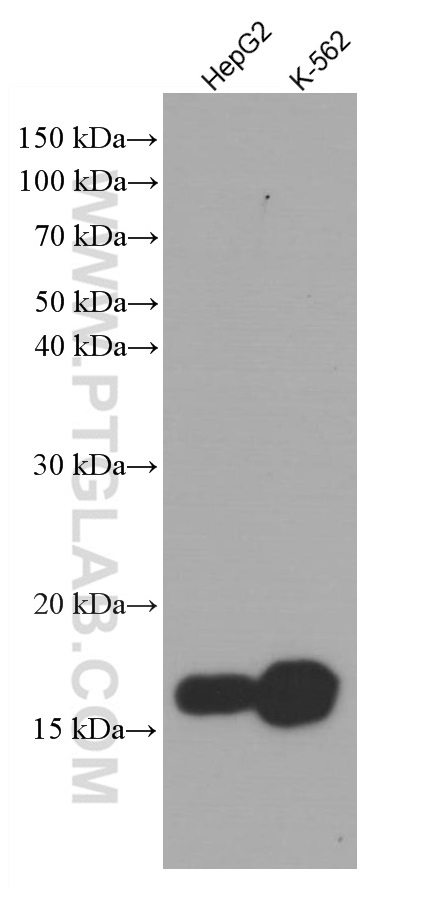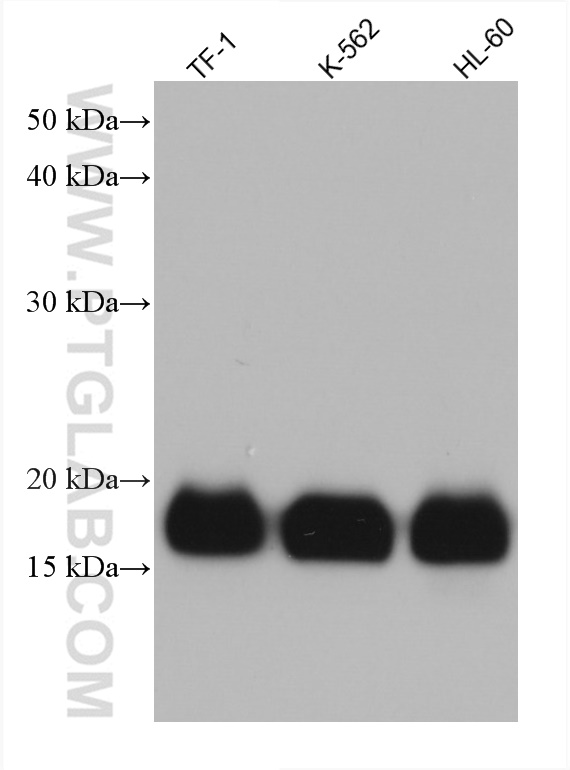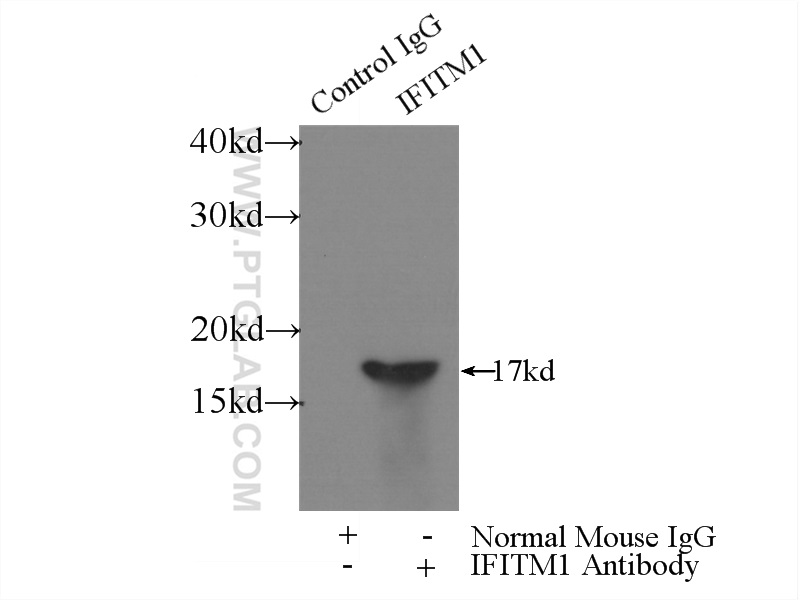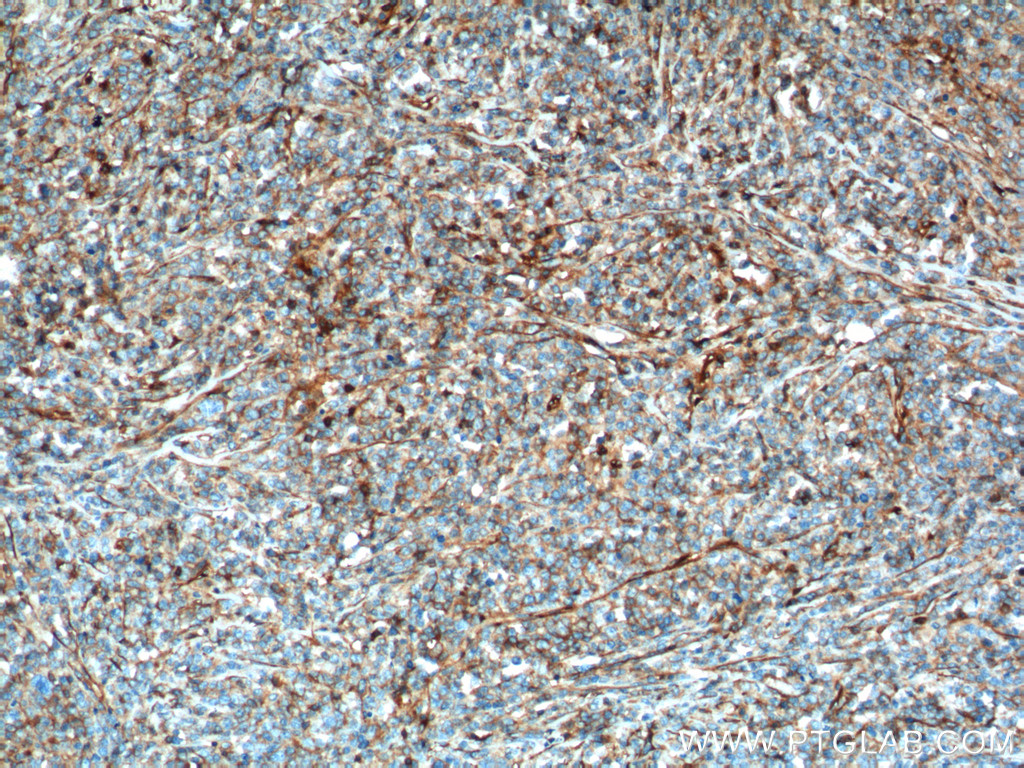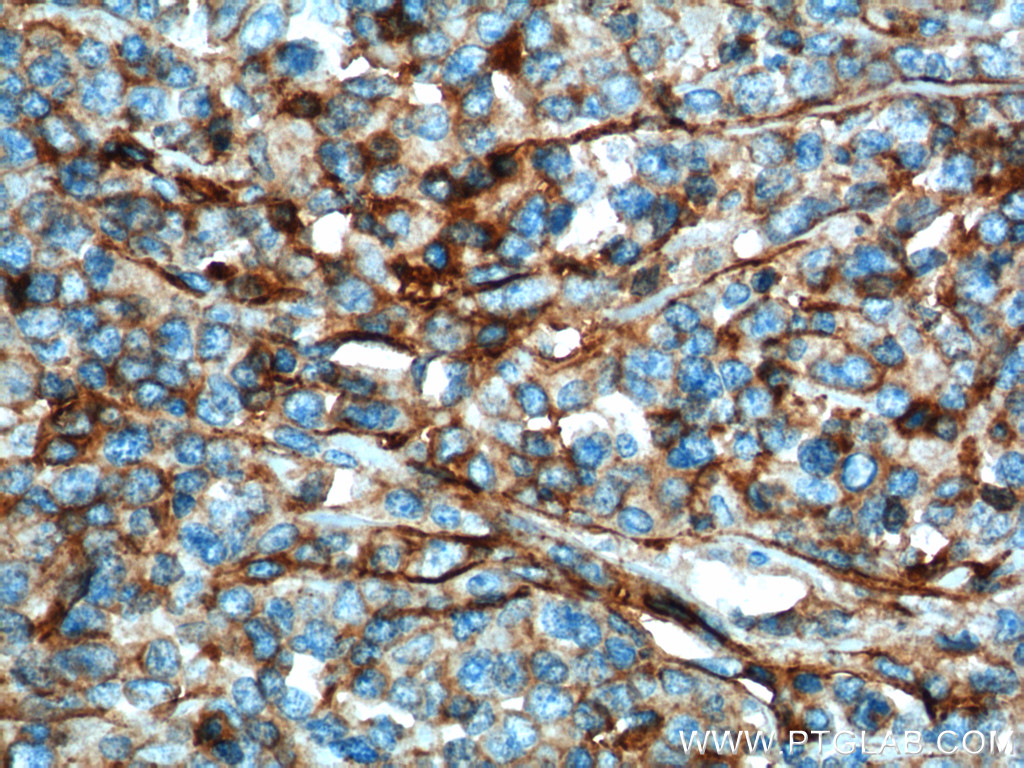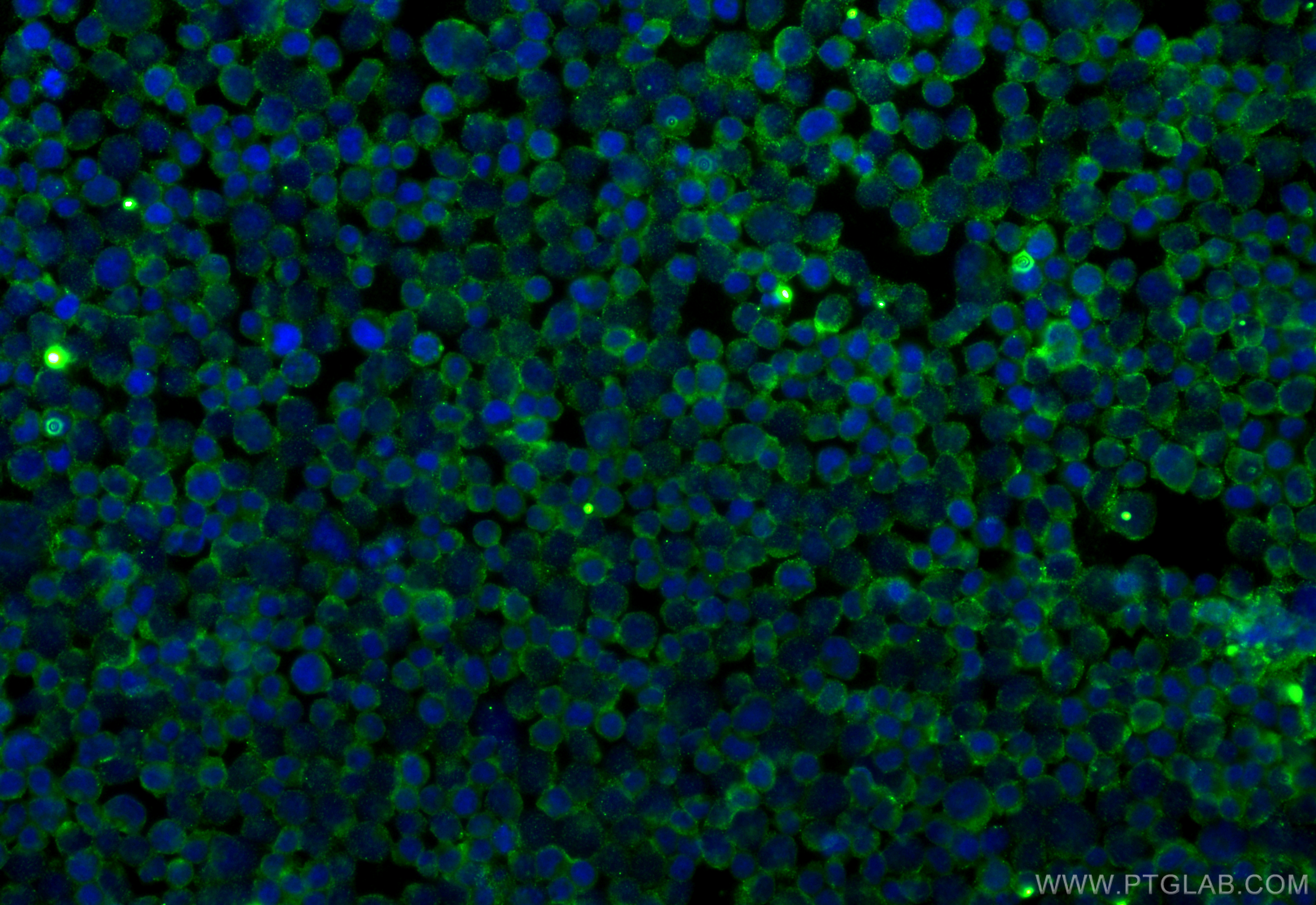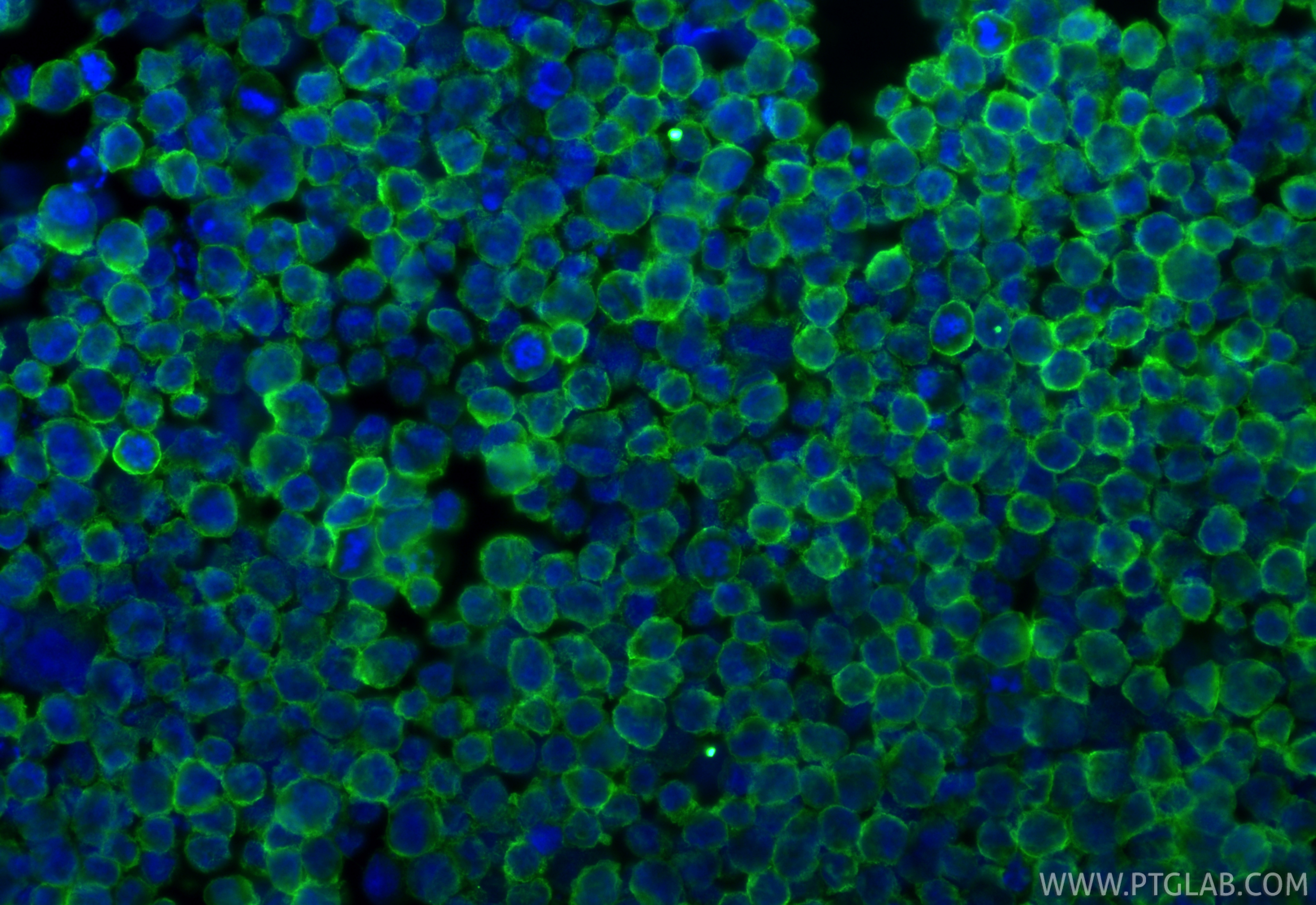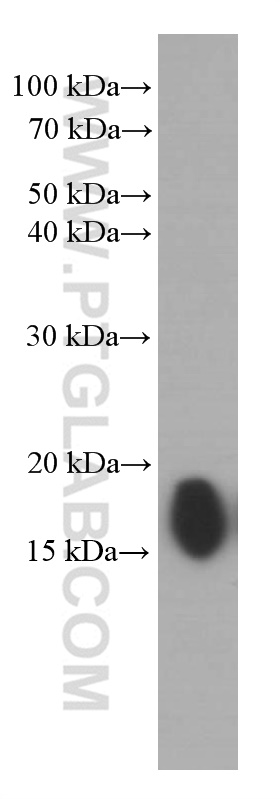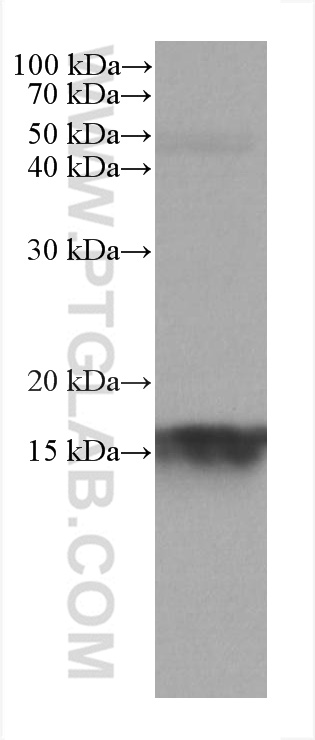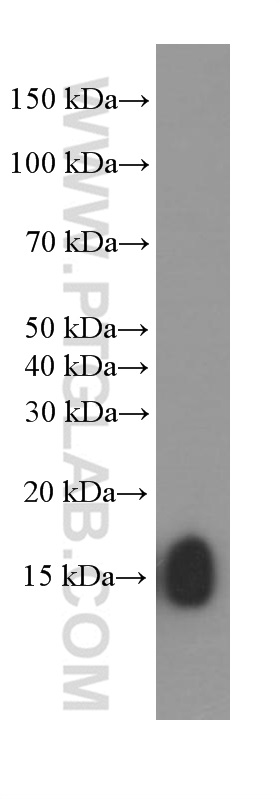验证数据展示
产品信息
60074-1-PBS targets IFITM1-Specific in WB, IHC, IF/ICC, IP, ELISA applications and shows reactivity with human samples.
| 经测试应用 | WB, IHC, IF/ICC, IP, ELISA Application Description |
| 经测试反应性 | human |
| 免疫原 |
CatNo: Ag2320 Product name: Recombinant human IFITM1 protein Source: e coli.-derived, PGEX-4T Tag: GST Domain: 1-125 aa of BC000897 Sequence: MHKEEHEVAVLGAPPSTILPRSTVINIHSETSVPDHVVWSLFNTLFLNWCCLGFIAFAYSVKSRDRKMVGDVTGAQAYASTAKCLNIWALILGILMTIGFILLLVFGSVTVYHIMLQIIQEKRGY 种属同源性预测 |
| 宿主/亚型 | Mouse / IgG2a |
| 抗体类别 | Monoclonal |
| 产品类型 | Antibody |
| 全称 | interferon induced transmembrane protein 1 (9-27) |
| 别名 | IFITM1, 5B5E2, 9 27, 927, CD225 |
| 计算分子量 | 14 kDa |
| 观测分子量 | 14-17 kDa |
| GenBank蛋白编号 | BC000897 |
| 基因名称 | IFITM1 |
| Gene ID (NCBI) | 8519 |
| RRID | AB_2233405 |
| 偶联类型 | Unconjugated |
| 形式 | Liquid |
| 纯化方式 | Protein A purification |
| UNIPROT ID | P13164 |
| 储存缓冲液 | PBS only, pH 7.3. |
| 储存条件 | Store at -80°C. The product is shipped with ice packs. Upon receipt, store it immediately at -80°C |
背景介绍
IFITM1(interferon induced transmembrane protein), also named DSPA2a and interferon-induced protein 17 (IFI17), belongs to the CD225 family. It has two transmembrane domain and serves as an IFN-induced antiviral protein that mediates cellular innate immunity to at least three major human pathogens, influenza A H1N1 virus, West Nile virus (WNV), and dengue virus , by inhibiting the early steps of replication. IFITM proteins are recently identified as viral restriction factors that inhibit infection mediated by the influenza A virus (IAV) hemagglutinin (HA) protein. Also they serve as important components of the innate immune system to restrict HIV-1 infection. 60074-1-Ig is a mouse monoclonal antibody which specifically recognizing IFITM1 but not IFITM2 or IFITM3.

